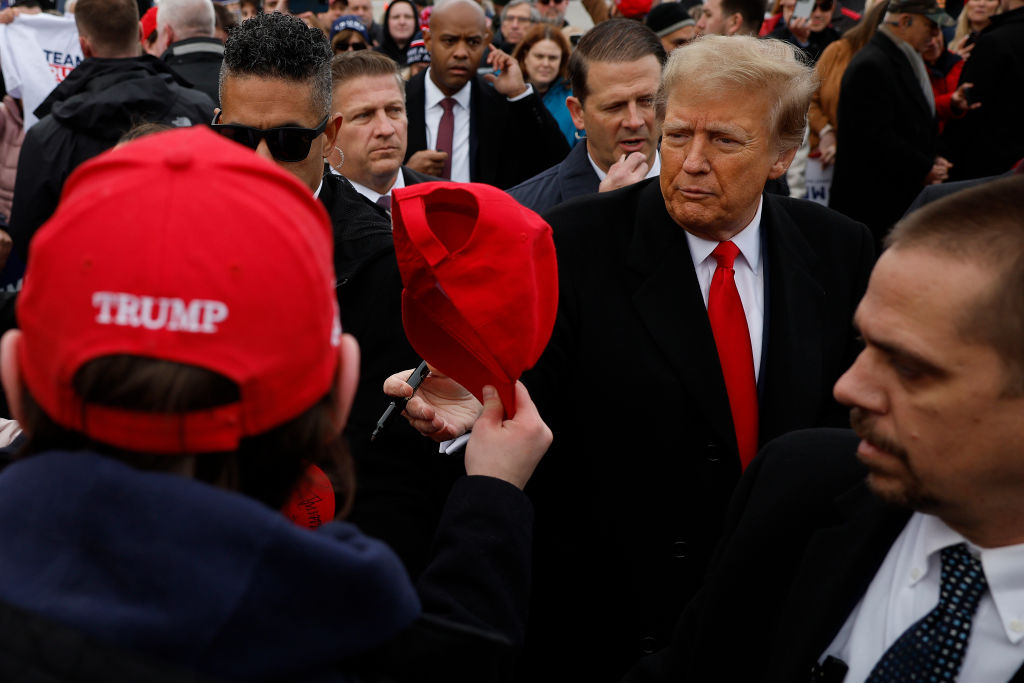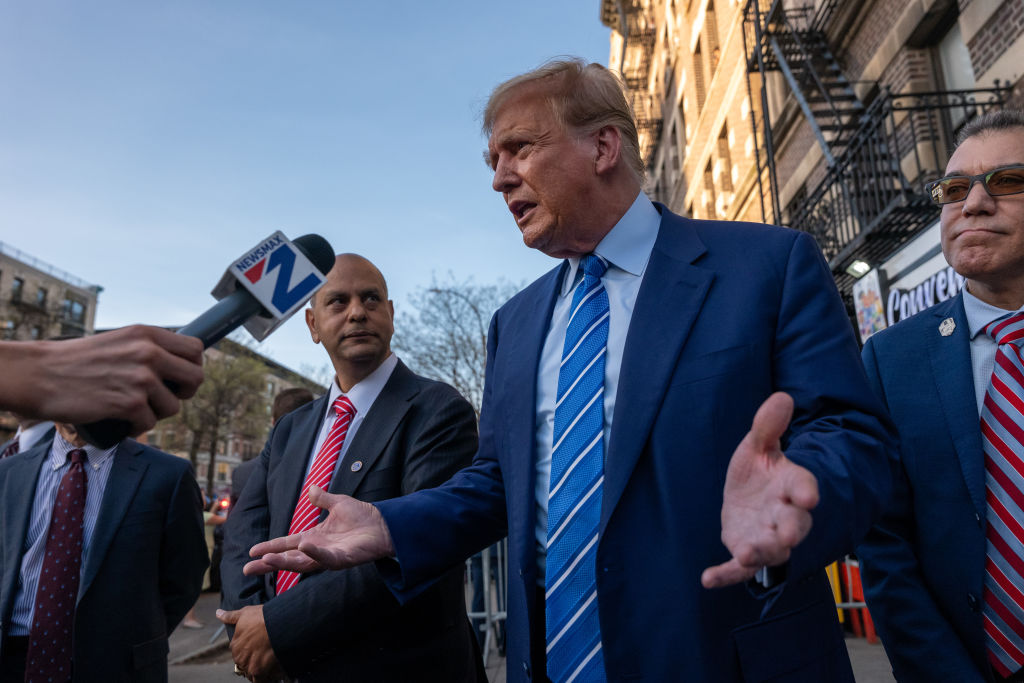The RICO case against Trump demonstrates the radical Left’s commitment to ending free speech.
Why Trump Will Win This November

The former president will be a force to reckon with in the fall.
Every year in January, I assign my juniors the essay “Six Harsh Truths” by Jason Pargin. It offers a nice motivational boost at a time in the school year when everyone is tired, irritable, and praying for snow days. Originally published on the humor website Cracked (I clean up the language and jokes so that it’s school appropriate), but the argument Pargin makes is appropriate for readers of all ages: “society is full of people who need things…. Either you will go about the task of seeing to those needs by learning a unique set of skills, or the world will reject you, no matter how kind, giving and polite you are.”
In other words, the world only cares about what a person has to offer. People who offer something of value will be rewarded with employment, relationships, and esteem. People who don’t will have none of these things. As for their personal character or political views, little of this matters unless it affects their ability to produce and be useful. For this reason, Pargin explains, nice guys often finish last, and jerks tend to make up society’s winners.
For high school students, the lesson is clear: if you want to make friends, have a girlfriend or boyfriend, and win the respect of adults, you need to make yourself valuable through developing skills and working hard. No one cares what you believe or what your tastes are; they only care about what you do.
So what does this have to do with politics and this year’s elections? Everything.
Even though political commentators often sift through the views and comments of each candidate to determine their “electability,” most Americans vote based on what each candidate offers. This is why issues like the economy, immigration, law and order, or waging wars will always take priority over corruption, cultural controversies, or identity. The former issues are ones on which a politicians can deliver something (for example, money, peace, security, etc.). As for the latter issues, they can only offer some affirmation at best.
This is why incumbents have such a huge advantage in elections. They have a record of what they produced, and voters know what they can get for their vote. Outsiders who have no record must persuade voters to trust them to make good on their promises. Still worse is the outsider who doesn’t even promise anything, but only signals that he has the right views and is politically orthodox—that is, they are a “true conservative” or “true progressive.” Such a candidate might win big with the donor class, but the majority will want the person who can give them something.
Although Trump winning the GOP primary in 2016 was something of a mystery to most people at the time, it was really quite simple. There were no incumbents, and everyone besides Trump touted their conservatism while Trump promised to make the country great again. As polished politicians like Marco Rubio and Ted Cruz were running circles around Trump on conservative talking points, Trump vowed to “build the wall,” “drain the swamp,” and do “so much winning…that you may get bored with the winning.”
Trump losing the 2020 presidential election can be explained with the same logic. Though an incumbent, he failed to deliver what he promised: Covid wrecked the economy; cities were aflame; Democrats and rebellious bureaucrats prevented him from building a wall, taking down insurrectionists, and draining the swamp; and establishment Republicans made him and his party look like losers. True, little of this was technically his fault, and he delivered in other ways, and he likely would have won in a fair election, but many Americans at the time believed that Biden would offer them more than Trump—at the very least, he would stop the leftist tantrums.
With the upcoming presidential election, the calculation will remain the same as ever. As an incumbent, Trump will blast through the GOP primary, because he has continued to promise more goods and has a record to show that he means what he says. Meanwhile, his single main opponent, Nikki Haley, has an exemplary record as governor, but hardly bothers to mention what she brings to the table. From what most people can tell, she offers meddling in foreign countries and kickbacks for crony executives.
And what about Joe Biden? In short, he offers more economic stagnation, rising prices, pointless wars, urban decay, political persecution, abortions, record illegal immigration, and endless words of sympathy for those who identify as marginalized—as well as potential riots if he loses. Both his record and his current campaign strongly attest to this. And, judging from current polls, American voters are well aware of what to expect.
This doesn’t necessarily mean that Trump will win a second term, but it does strongly indicate that he is in a much better position than he was in his last two races. It should also serve to dictate how Trump continues to manage his campaign and communicate to voters. Few people really care what he posts on Truth Social, much less what phony indictments he is fighting. Nor is anyone seriously alarmed by his “authoritarian language”—if anything, it’s treated as a sign that he might actually drain the swamp this time. Similarly, Biden’s senility, hypocrisy, and flagrant corruption will also not matter much to voters.
It will come down to what voters think they will do as president, and what they ultimately want. For now, most Americans value productivity, freedom, national strength, and entertainment—by contrast, their more passive counterparts in Europe tend to value economic security, predictability, and stability. Assuming nothing changes about the candidates or the people voting, this reality bodes well for Trump and the MAGA movement this November.
The American Mind presents a range of perspectives. Views are writers’ own and do not necessarily represent those of The Claremont Institute.
The American Mind is a publication of the Claremont Institute, a non-profit 501(c)(3) organization, dedicated to restoring the principles of the American Founding to their rightful, preeminent authority in our national life. Interested in supporting our work? Gifts to the Claremont Institute are tax-deductible.
Alvin Bragg’s indictment of Donald Trump abuses any definition of fraud.
Mexico’s president has America hooked on what he’s selling.
The normalization of election tampering has perverted American politics.
Pocketbook concerns override racial resentment in the current political climate.
On civil war in America and other unpleasant possibilities.






